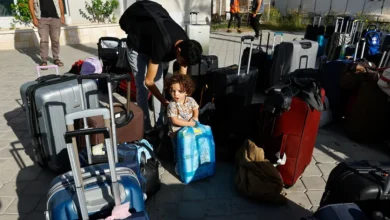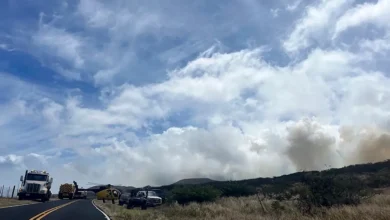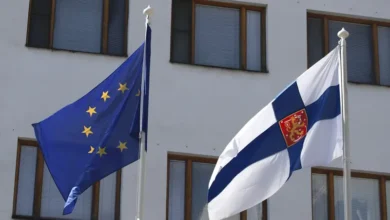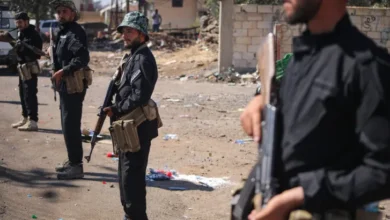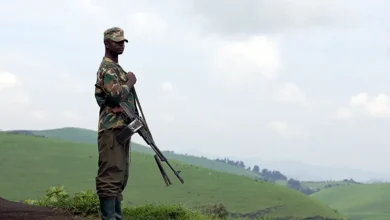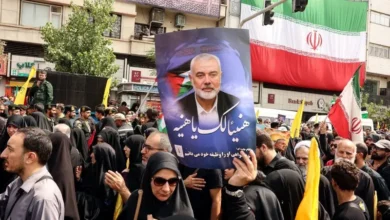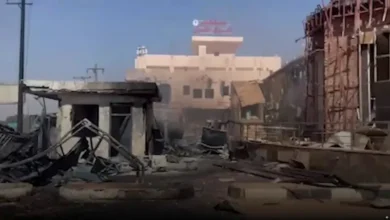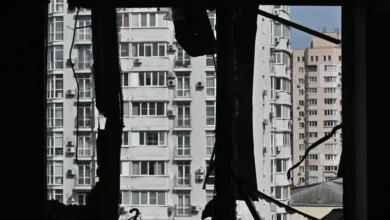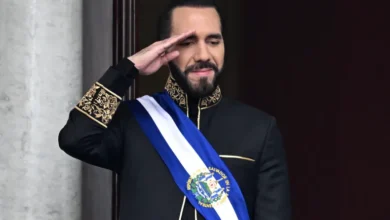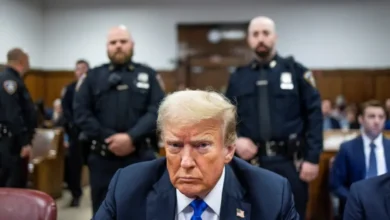France’s Macron calls for arms sales ban on Israel as Gaza war nears a year
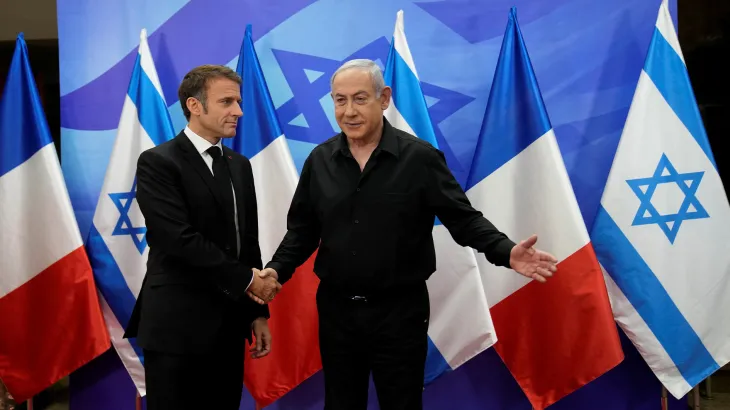
French President Emmanuel Macron has called for a halt on arms deliveries to Israel which has been bombing Gaza for a year now, and recently launched a military operation against Lebanon.
“I think that today, the priority is that we return to a political solution, that we stop delivering weapons to fight in Gaza,” Macron told broadcaster France Inter on Saturday.“France is not delivering any [weapon],” he added during the interview recorded early this week.
While France is not a leading weapons provider for Israel, its voice as a key player in the European Union and as a permanent member of the United Nations Security Council carries significant influence amid international efforts to reach a political solution to the conflict in Gaza.
In September, the United Kingdom also announced that it was suspending some arms exports to Israel, citing a “clear risk” that they could be used in a serious breach of international humanitarian law.
Macron reiterated his concern over Israel’s catastrophic attacks on Gaza which continue despite repeated calls for a ceasefire.
“I think we are not being heard. I think it is a mistake, including for the security of Israel,” he said, adding that the conflict was leading to “hatred”.
Macron also criticised Netanyahu’s decision to send troops into ground operations in Lebanon, saying the priority should be to “avoid escalation”.
“The Lebanese people must not in turn be sacrificed, Lebanon cannot become another Gaza,” he said.
“As Israel fights the forces of barbarism led by Iran, all civilised countries should be standing firmly by Israel’s side,” Netanyahu said in a statement issued by his office. “Yet, President Macron and other Western leaders are now calling for arms embargoes against Israel. Shame on them.”
Macron’s office responded with a statement later on Saturday, calling France a “steadfast friend of Israel” and describing Netanyahu’s reaction as “excessive and detached from the friendship between France and Israel”.
Macron’s statement is being seen as a message as much for Israel as for their common ally, the United States, which is the largest arms provider to Israel.
In May, the US Department of State said it did not have enough evidence to block shipments of weapons but that it was “reasonable to assess” that Israel has used arms in ways inconsistent with standards of humanitarian law.
Qatar, a key mediator in Gaza ceasefire talks, said Macron’s statement was “an important and appreciated step towards stopping the war”.
Jordan also welcomed the French leader’s remarks and stressed “the importance of imposing a complete ban on the export of weapons to Israel” and “real consequences” for the country’s actions.
Macron’s comments came as his Foreign Minister Jean-Noel Barrot is on a four-day trip to the Middle East, wrapping up on Monday in Israel as Paris looks to play a role in reviving diplomatic efforts to reach a ceasefire.
Macron reiterated his concern over Israel’s catastrophic attacks on Gaza which continue despite repeated calls for a ceasefire.
“I think we are not being heard. I think it is a mistake, including for the security of Israel,” he said, adding that the conflict was leading to “hatred”.
Macron also criticised Netanyahu’s decision to send troops into ground operations in Lebanon, saying the priority should be to “avoid escalation”.
“The Lebanese people must not in turn be sacrificed, Lebanon cannot become another Gaza,” he said.
“As Israel fights the forces of barbarism led by Iran, all civilised countries should be standing firmly by Israel’s side,” Netanyahu said in a statement issued by his office. “Yet, President Macron and other Western leaders are now calling for arms embargoes against Israel. Shame on them.”
Macron’s office responded with a statement later on Saturday, calling France a “steadfast friend of Israel” and describing Netanyahu’s reaction as “excessive and detached from the friendship between France and Israel”.
Macron’s statement is being seen as a message as much for Israel as for their common ally, the United States, which is the largest arms provider to Israel.
In May, the US Department of State said it did not have enough evidence to block shipments of weapons but that it was “reasonable to assess” that Israel has used arms in ways inconsistent with standards of humanitarian law.
Qatar, a key mediator in Gaza ceasefire talks, said Macron’s statement was “an important and appreciated step towards stopping the war”.
Jordan also welcomed the French leader’s remarks and stressed “the importance of imposing a complete ban on the export of weapons to Israel” and “real consequences” for the country’s actions.
Macron’s comments came as his Foreign Minister Jean-Noel Barrot is on a four-day trip to the Middle East, wrapping up on Monday in Israel as Paris looks to play a role in reviving diplomatic efforts to reach a ceasefire.

